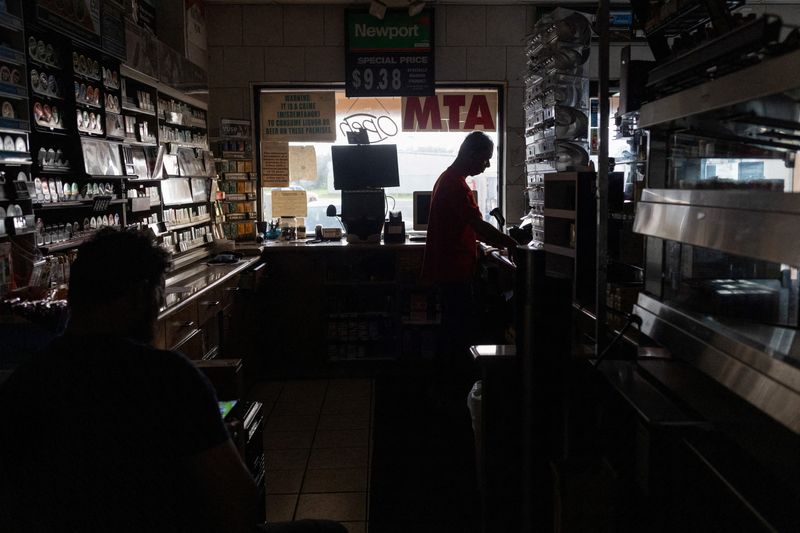
By Liz Hampton
(Reuters) – More than 1.3 million homes and businesses in Texas remained without power on Thursday, four days after Hurricane Beryl lashed the state with fierce winds and heavy flooding, sparking frustration among residents who were facing extreme heat.
Around 1.1 million of those without power were customers of CenterPoint Energy (NYSE:CNP), the state’s largest provider, data from PowerOutage.us showed.
Although the utility had restored power to 1.16 million customers since the storm, it was facing increased scrutiny over its preparations ahead of Beryl. In a letter to CentrePoint, Congresswoman Sylvia Garcia called the slow restoration of power a public health crisis.
CenterPoint said on Wednesday it expected to restore power to an additional 400,000 customers by Friday and 350,000 customers by Sunday. In total, 2.26 million of is customers lost power in the storm.
“Crews have identified extensive tree damage across the company’s system. Trees across the Greater Houston area were particularly vulnerable due to three unusual years of weather, including significant freezes, drought and heavy rain this past spring,” CenterPoint said in a release.
Temperatures in southeast Texas were expected to be in the low to mid-90 degrees Fahrenheit (low to mid-32 degrees Celsius) on Thursday, with heat indices in the 100s, the National Weather Service said on Thursday.
Damage from Beryl could cost insurers in the United States roughly $2.7 million, catastrophe modeling company Karen Clark & Co said on Thursday.
Beryl, which made landfall as a Category-1 storm early Monday morning, shut major ports along the Gulf Coast and disrupted some refining and production processes, though many had resumed normal operations by Thursday.
The Texas Gulf Coast is home to massive oil and gas processing facilities, as well as export plants and chemical manufacturers. Texas accounts for 40% of U.S. oil output and 20% of the country’s natural gas production.
Freeport LNG, one of the largest liquefied natural gas facilities in the United States, was set to restart operations on Thursday, sources told Reuters earlier this week, after ramping down production for the storm over the weekend.

Operations at the facility would be limited by the port, which continued to operate with restrictions.
Chemical maker Olin (NYSE:OLN) declared a force majeure for some product and aromatic shipments after Beryl caused damage to its Freeport facilities.
This post is originally published on INVESTING.


